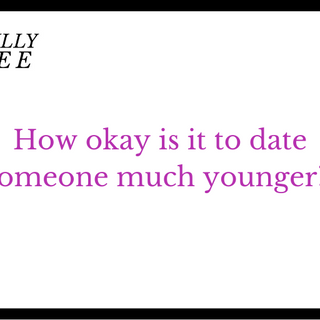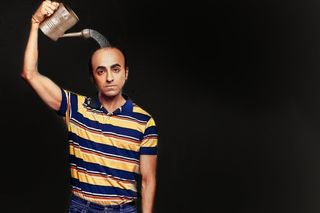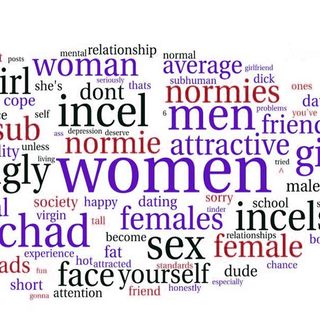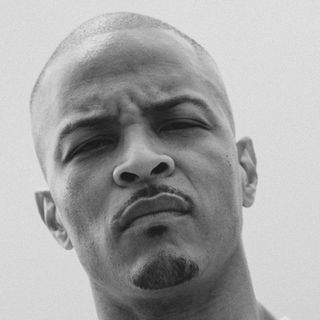
‘Bala’ Reminds Us That Insecurity Is Often the Root of Judging People By Appearance
However, with an actress in brownface delivering impassioned dialogue about beauty standards, the movie is a bit difficult to take seriously.

Of the limited amount of years I’ve spent on this planet, I never thought I’d hear Chunky Pandey say, “We live in a patriarchal society.” But Bala, directed by Amar Kaushik of Stree fame, somehow made that happen. The setting is a conversation amid friends, in which Bal Mukund Singh, or Bala, (Ayushman Khurana) is stressed about his impending marriage to a beautiful TikTok star Pari (Yami Gautam), who doesn’t know he wears a wig to hide his hair loss. Bala’s friends (including Pandey, playing an Amitabh Bacchan lookalike) reassure him that yes, indeed we do live in a patriarchy, where male flaws don’t matter as much as female flaws, and where a man can absolutely get away with hiding things from his to-be-wife till post-marriage. What’s she going to do? Get a divorce? Bala grapples with his feelings, makes a failed attempt to tell her the truth, and eventually marries her, buying into his friends’ philosophy.
The way Bala views the world is from both the entitled lens of a person who used to be beautiful and the self-pitying lens of the not-so-beautiful. He’s not a terrible person, just selfish — blinded by the weight of his own problems, he fails to understand or acknowledge the problems of those around him. Though Bala is written as a punchy, pleasing fable set in the most colorful, Bollywoodized version of Kanpur, there is a background mood of misery and second-hand embarrassment that keeps the audience uneasy throughout the film’s duration. The story of a young boy utterly in love with his own image and life surrounding it, then coming face to face with premature balding and learning how to accept and love himself, is warm viewing, but it is also a reminder of the worst of our demons — insecurity — and what absolute garbage human beings it can make of us. Bala shows how too often in real life, we, blinded by our own self-pity, inflict the harsh standards levied upon us by society onto others, ruining their self-worth and creating a toxic cycle of unfair beauty standards.
Bala, who spent his entire childhood being loved for his looks and charm, must contend with having his charm cut in half by premature balding. He remains miserable — turning to everything from oils to eggs to cow dung to bull semen to pubic hair transplants in order to bring his hair back. However, his own misery does nothing to influence what he views as beautiful and how entitled he remains to it; in fact, it only solidifies what he views as beautiful further. He hawks fairness creams by destroying the self-esteem of dark-skinned women; he continues to cruelly rib his childhood friend Latika (Bhumi Pednekar) about her dark skin; and he lies his way into fairness cream model and TikTok star Pari’s affections, all because he remains a man-child, his entitlement a hangover from when he peaked in high school. On the flip side, there’s Pari, who grew up beautiful, and whose insecurity is a fear of not conforming to beauty, because she believes there’s nothing more to her than just that. A balding husband kills the illusion of the ideal appearance for her, which is what she feels entitled to and which is why she instantly rejects Bala when he reveals his truth.
Related on The Swaddle:
‘Dream Girl’ Peddles Pseudo‑Feminist, #NotAllMen Rhetoric
Larger-than-life cinematic narration in Bala, typical of Bollywood, tugs at your heartstrings to empathize with the insecure. Oh no, it murmurs, look how miserable this person is because they did not win the genetic lottery. We empathize with Bala, because we’ve all felt like the genetic lottery failed us, and so we root for the hero as he fumbles his way through the world, judged and looked down upon.However, insecurity is also always in cahoots with what the insecure cannot have, all while pumping entitlement for the same into the insecure individual. In Bala, what’s out of reach is the ideal appearance, and that’s exactly what the insecure characters in the movie enforce again and again upon those they deem unworthy, in order to form an illusion of being the closest to the ideal, to almost achieving it, someday.
The only person who stands as an antithesis to these dark manifestations of insecurity is Latika — strong-willed, confident and no-nonsense. As a character, Latika is a joy to watch, while she rolls her eyes at the cringe perpetuated by both presently and has-been pretty people she’s forced to deal with. Perhaps her steadfast refusal to accept any insults regarding her dark skin, to Facetuning, to use fairness creams, and to acknowledge anyone’s pity would’ve made her a character the audience could root for — if only the knowledge of Bhumi Pednekar’s brownface didn’t rest uneasily in our heads. Ironically, a film that set out to parody small-town insecurities now stands as a parody of the hypocrisies its parent industry perpetuates.
However, Bala, is quite watchable — fun, even, due to pleasant dialogue and performances from its cast. There’s enough recognizable cultural references peppered in there to steal a laugh — dramatized song-and-dance TikTok videos, Shah Rukh Khan dialogues, the cap as a balding man’s best friend, and Yami Gautam, the actress who is often roasted online for endorsing Fair and Lovely cream, now endorsing fairness creams as a character onscreen. Ayushman Khurana, hell-bent on choosing scripts with energies I can only describe as ‘Akshay Kumar-esque social justice for the youths,’ kind of gets it right this time. Maybe, because instead of trying to solve feminism, he tries to teach men to face and embrace their greatest horror — being laughed at.
Aditi Murti is a culture writer at The Swaddle. Previously, she worked as a freelance journalist focused on gender and cities. Find her on social media @aditimurti.
Related


Looksmax, Redpill, Femoid: Dissecting Incel Language and Ideology
